Hans Island
description: a small, uninhabited barren rock in the Arctic Ocean, the sovereignty of which is disputed between Canada and Denmark
5 results
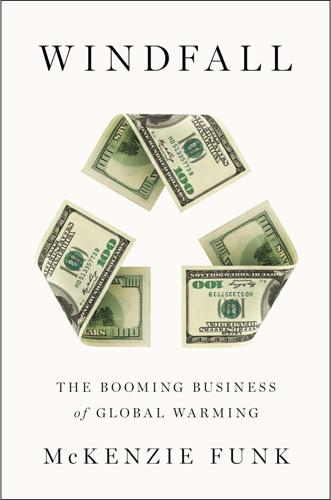
Windfall: The Booming Business of Global Warming
by
Mckenzie Funk
Published 22 Jan 2014
Petersburg, the geologists who have led this and other follow-up surveys would proudly show me photographs of their approach to gathering seismic data: men pushing a golf-cart-size mesh sack of dynamite into an ice opening. Canada signed the Law of the Sea in 2003, Denmark in 2004. Despite remaining tensions over Hans Island, the two countries have worked together to try to prove that the Lomonosov Ridge, the eleven-hundred-mile, trans-Arctic, undersea mountain range that may justify Russia’s claim to the North Pole, is also connected to Canada’s Ellesmere Island and Denmark’s Greenland. America has sent scientists and State Department representatives north of Alaska to prepare claims to parts of the Chukchi and Beaufort seas; I once spent a drama-free month with them on an icebreaker.
…
We first met on the back deck, near the helicopter hangar, and he immediately asked who I thought owned the Northwest Passage. I said I wasn’t sure. “It’s ours,” he told me. “It’s fucking ours.” Then he shared his solution for the territorial dispute over Hans Island. “We should just nuke Denmark,” he said. He was kidding, of course. Canada has no nuclear weapons. His real solution was more typically Canadian, and it revealed him as a believer in the basic boots-on-the-ice premise of Operation Lancaster: If Canada backed up its Arctic claims with a physical presence, the world would recognize them. “Just put a trailer on the island,” he said. “Two guys, two months at a time. Give them TVs and VCRs.
…
Now, as his Vandoos and Mounties moved north, he was putting boots on the ice. There had been sovereignty operations before, including Nunalivut (Inuktitut for “the land is ours”) in 2006 and the previous year’s Exercise Frozen Beaver, when Canadian troops helicoptered to Hans Island—a bean-shaped, half-square-mile rock near Greenland claimed by both Denmark and Canada—and planted a supposedly windproof steel flag and flagpole that the wind toppled almost immediately. But Lancaster was the largest such operation to date, the first to take advantage of retreating sea ice, and it was occurring on the hundredth anniversary of the Northwest Passage’s first crossing (which was by a Norwegian, though no one dwelled on that).
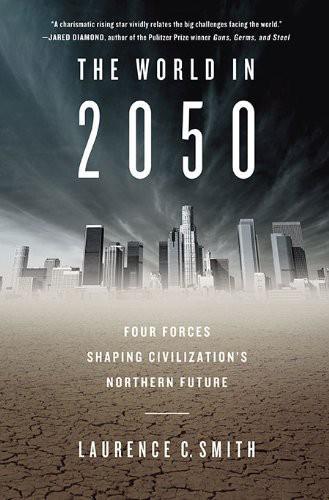
The World in 2050: Four Forces Shaping Civilization's Northern Future
by
Laurence C. Smith
Published 22 Sep 2010
Tiny Rockall—literally a barren rock peeking out of the North Atlantic—has been claimed by the United Kingdom, Ireland, Iceland, and Denmark. Denmark is also tussling with Canada over Hans Island, another speck sitting between the two countries in the Nares Strait off Greenland. The convoluted coastlines of Russia and Alaska open a doughnut hole of high seas in the midst of their Exclusive Economic Zones, into which Japan, South Korea, Taiwan, and Poland pour fishing trawlers.349 Finally, border disputes arise over how the two-hundred-nautical-mile extension is to be drawn with respect to other boundaries. Canada, for example, extends the ocean border as a straight-line extension of its land border with Alaska, whereas the United States draws the line at right angles to its coastline.
…
Norway submitted its EEZ extension claim in 2006 and was approved in 2009.353 The United States, Canada, Denmark, and Russia are still busily mapping, with Russia closest to being done. Canada will file by 2013 and Denmark by 2014. Because the United States hasn’t ratified UNCLOS yet, it will likely be last to file but has already gathered much of the required hydrographic sonar and other data from the Healy icebreaker, work led by Larry Mayer at the University of New Hampshire. After all this work and expense, small wonder that these five countries—Russia, Denmark, Canada, Norway, and the United States—recently banded together to issue the “Ilulissat Declaration,” an assertion that existing international laws are perfectly sufficient for working out their territorial disputes in the region.
…
Gorbachev, Mikhail Grameen Bank Gravity Recovery and Climate Experiment (GRACE) Great Lakes The Great Lakes Water Wars (Annin) Great Recycling and Northern Development (GRAND) Canal Green, Pamela greenhouse gases: anthropogenic; and biofuels; and climate modeling; and coal; and global warming; and melting permafrost; and nuclear power; and prospects for NORCs; and sulfur dioxide; and water vapor Greenland: and aboriginal peoples; and Arctic politics; and climate research; economy of; and the Endangered Species Act; and glaciers/ice sheets; and global warming; and Home Rule; and independence; and the “New North,” Greenland Ice Sheet grizzly bears groundwater Gulags Gulf of Alaska Gulf Stream Hadley Cell circulation Haiti Hans Island Harper, Stephen Harvard Business Review Hayflick, Leonard High Aswan Dam high-impact events High Level, Alberta high-voltage direct-current (HVDC) power transmission Hill, Fiona Hirsch, Bob Hitler, Adolf HIV/AIDS Hockey Night in Canada Hoefer, Tom Hong Kong Hoover Dam Hudson Bay Hudson Bay Express Huebert, Rob Hurricane Ike Hurricane Katrina hurricane vulnerability hybrid cars hybridization of species hydrocarbon fuels.
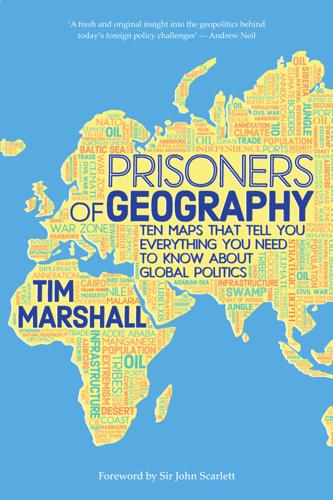
Prisoners of Geography: Ten Maps That Explain Everything About the World (Politics of Place)
by
Tim Marshall
Published 10 Oct 2016
The area is treated by both sides as being under US sovereignty, but the Russians reserve the right to return to this issue. Other disputes include the one between Canada and Denmark over Hans Island, located in the Nares Strait, which separates Greenland from Ellesmere Island. Greenland, with its population of fifty-six thousand people, has self-government but remains under Danish sovereignty. A 1953 agreement between Denmark and Canada left the island still in dispute, and since then both countries have taken the trouble to sail to it and plant their national flags on it. All the sovereignty issues stem from the same desires and fears—the desire to safeguard routes for military and commercial shipping, the desire to own the natural riches of the region, and the fear that others may gain where you lose.
…
In 2012, it had to rely on a Russian ship to resupply its research base in Antarctica, which was a triumph for great-power cooperation, but simultaneously a demonstration of how far behind the United States has fallen. No other nation presents a challenge, either: Canada has six icebreakers and is building a new one; Finland has eight; Sweden, seven; and Denmark, four. China, Germany, and Norway have one each. The United States has another problem. It has not ratified the UNCLOS treaty, effectively ceding two hundred thousand square miles of undersea territory in the Arctic because it has not staked a claim for an EEZ. Nevertheless, it is in dispute with Canada over potential offshore oil rights and access to the waters in the Canadian archipelago. Canada says they are an “internal waterway,” the United States says they are a strait for international navigation not governed by Canadian law.
…
Its air force regularly intercepts Russian fighter jets approaching its borders; the heightened tensions have caused it to move its center of military operations from the south of the country to the north, and it is building an Arctic battalion. Canada is reinforcing its cold-weather military capabilities, which includes five new navy warships with moderate ice-breaking capability to be delivered between 2018 and 2022. Announcing the increase in the spring of 2015, Prime Minister Stephen Harper said, “Canada has a choice when it comes to defending our sovereignty over the Arctic. We either use it or lose it.” Denmark has also reacted to Moscow’s muscle flexing by creating an Arctic Response Force. Russia meanwhile is building an Arctic army.
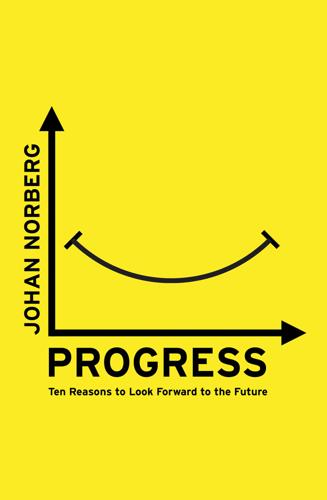
Progress: Ten Reasons to Look Forward to the Future
by
Johan Norberg
Published 31 Aug 2016
As the Austrian economist Ludwig von Mises put it, if the tailor goes to war against the baker, he must henceforth bake his own bread.28 There are disputes between liberal democracies as well, of course, but the difference is how they are resolved. Hans Island, a small, uninhabited island in the Kennedy Channel between Canada’s Ellesmere Island and northern Greenland, is claimed by both Canada and Denmark. The countries’ militaries do visit the island once in a while. When the Danish military visits the island, they leave a bottle of Danish schnapps. When the Canadian military visit they leave a bottle of Canadian Club and a sign saying, ‘Welcome to Canada.’ 6 The environment Are not poverty and need the greatest polluters? . . . How can we speak to those who live in villages and in slums about keeping the oceans, the rivers and the air clean when their own lives are contaminated at the source?
…
Index abolitionism 146–7 abortion 176–7 acid rain 111 adultery 171–2, 176 Afghanistan 83, 101, 102, 136, 156 Africa 25, 52, 154 and child labour 193, 195 and education 133–4 and HIV/AIDS 59, 60 and homosexuality 187 and malnutrition 21, 23–4 and poverty 79–80, 81 and slavery 140, 142, 143–4, 145 and water 38–40 and women 179 African Americans 162, 163, 167–9 agriculture 13, 14–16, 17–19, 20, 21, 89 and children 190–1 and China 27–9 and land use 22–3, 112 and water 38 Albert, Prince Consort 32 alcohol 31 algae 15 Algerian War of Independence 94 Amazon rainforest 112 American Civil Liberties Union (ACLU) 182–3, 185 American Revolution 149 ammonia 14, 15 An Lushan Revolt 95 Ancient Greece 31–2, 44, 84, 140–1, 183 Angell, Norman 103 Angola 21, 83 anti-Semitism 162 antibiotics 2, 50 apartheid 153 Arab Spring 155, 156 Argentina 133 artificial fertilizers 14–15, 18, 22–3, 108 Asal, Victor 170 Asia 67–70, 133, 187, 195 Auld, Hugh 137, 138 Australia 114 Ausubel, Jesse 112 authoritarianism 156 Bacon, Francis 217 bad news 207–12 Bailey, Ronald 205 Bales, Kevin 148–9 Bangladesh 37, 81, 117 Barbary States 143–4 Basu, Kaushik 135 bathing 34, 47 Beccaria, Cesare 93 Bentham, Jeremy 172, 184 Berg, Lasse 68–9, 129, 130, 202–3, 214–15 Berlin Wall 152 Bible, the 84–5, 86, 140, 183 bigotry 188 bio-fuels 125 birth weight 11 Black Death 42 Blackstone, William 184 bloodletting 44, 47 Boko Haram 148 Bolling, Anders 211 Borlaug, Norman 17–19, 23–4 Bosch, Carl 14 Boschwitz, Rudy 23 Bosnia 102 Botswana 27 Brandt, Willy 151 Braudel, Fernand 9, 10, 63 Brazil 153 Britain, see Great Britain Buggery Act (1533) 184 Bure, Anders 132 bureaucracy 216 Burger, Oskar 45 Bush, George W. 187 Caesar, Julius 141 calories 12, 16, 19–20 Cambodia 38 Cameroon 21 Canada 105 cancer 58, 115 cannibalism 8, 10 capital punishment 93–4, 185, 197–8 capitalism 66–7 carbon dioxide 119, 120, 123–4, 127 cardiovascular disease 58 Carter, Jimmy 24 caste system 72–3 Ceauşescu, Nicolae 153 censorship 157 Chad 83 Charlemagne 216 Charta 77: 151 chemical warfare 15 childbirth 4, 48, 49, 53–4, 197 children 11, 12 and education 133–4 and labour 189–96 and malnutrition 22 and mortality 32, 39–40, 45–6, 51, 53, 56 Chile 132, 153 China 27–9, 112, 200, 216–17 and child labour 193 and governance 153, 158 and homosexuality 187 and pollution 117, 119 and poverty 67–8, 69–71, 81 and slavery 148 and war 95, 104 and women 171, 177 chlorine 36–7 cholera 32, 35–6, 45, 55, 197 Churchill, Winston 163 civil rights movement 167–9 civilians 100–1 Clean Air Act (1956) 114 climate change 108, 119–21 Club of Rome 110, 115, 116 codes of honour 91–2 Cold War 99, 182 colonialism 103, 163 combine harvesters 16 communism 25, 26, 28, 102, 151–3, 182 Condorcet, Marquis de 172 Congress of Vienna (1815) 145 contraception 176, 177 crime 93, 207–8, 211 Cronin, Audrey 103 crop failure 7–8, 18 Cuba 132 Czechoslovakia 151, 152 dalits 72–3, 129 Darwin, Charles 45 De Gaulle, Gen Charles 161 ‘dead zones’ 15 death penalty 93–4, 185 Deaton, Angus 12, 52, 61 Declaration of Independence 144–5 Defoe, Daniel 192 deforestation 111–12 dehydration 54–5 democracy 26–7, 104–5, 150–7 Democratic Republic of Congo 26, 81 Dempsey, Gen Martin 2 Denmark 105 diarrhoea 32, 37–8, 54–5 Dickens, Charles 173 dictatorships 150–1, 153, 154, 155, 158 Diderot, Denis 143 discrimination 167–70, 173 Disraeli, Benjamin 36 Divine Comedy (Dante) 183–4 divorce 176 domestic violence 179 Douglass, Frederick 137–8, 139–40, 174 Dublin, Louis 60 dysentery 40 East Germany 152 Ebola 53, 209–10 Economic Freedom of the World 157–8 economics 67–9, 79, 165–6 education 17, 38–9, 135–7, 173, 197; see also literacy Egypt 133, 155, 156 Eisenhower, Dwight D. 168, 182 Eisner, Manuel 90 Ekman, Freddie 208 Elizabeth I, Queen 33, 34 energy 123–8 Engels, Friedrich 165–6 Enlightenment, the 4, 13, 66, 93, 184 and slavery 142–3 and women 172 environment, the 23–4, 108–12, 113–17 and climate 119–20 and energy 123–8 and poverty 117–19, 120–3 equality 143, 178–9, 188; see also inequality Equatorial Guinea 37 Ethiopia 24 ethnic minorities 161–71 Europe 216, 217–18 extinctions 112–13 extreme poverty 75–8, 79, 80–1 Factory Acts 193 famine 7–10, 13, 14, 17, 25–7, 46, 197 farming, see agriculture fascism 102 female genital mutilation 179 feminism 173 fertility rates 16–17, 24–5, 56 First World War 14, 15, 99, 104 fish stocks 112 Fitzhugh, George 147 Fleming, Alexander 50 flying toilets 39–40 Flynn Effect 164–5 food 2, 10–14, 13, 16, 17, 19; see also famine Food and Agricultural Organization (FAO) 20–1 forests 111–12 fossil fuels 108 France 9–10, 11–2, 42–3, 63–4, 161–2, 184 Francis, Pope 2 Frederick II, Emperor 32 Free the Slaves 148 freedom 138, 157–9 Friedan, Betty 183 Friedman, Benjamin 166 Friedman, Milton 158–9 Gandhi, Mahatma 168 Garrison, William Lloyd 146 Gates Foundation 52, 125 Gay Pride 185–6 gay rights 181–8 GDP (gross domestic product) 22, 56–7, 64, 67, 74–5 gender gap 178–9 genetically modified crops 23 genocide 101–2 George V, King 104 germ theory 48–9 Germany 114, 152, 183 Gini coefficient 82 globalization 4, 5, 45, 57, 74–5, 82, 218 Glorious Revolution 149 Golden Bull 149 Gorbachev, Mikhail 151 governance 90–1, 92; see also democracy graphene 126 Gray, John 2 Great Ascent 67 Great Britain 12, 114, 145, 192–4 and homosexuality 184, 185, 186 Great Powers 98–9 Great Smog 107–8, 114 ‘Great Stink, The’ 36 Green Revolution 17–20, 22, 23, 24 greenhouse gases 119 Guan Youjiang 29 Guangdong 70–1 H1N1 virus 59 Haber, Fritz 14, 15 Hagerup, Ulrik 208 Haiti 38, 57, 81, 114 Hans Island 105 happiness 199 Harrington, Sir John 33 Harrison, Dick 140 hate crimes 170 Havel, Václav 151, 152 height 16, 21–2 Helvétius, Claude Adrien 172 Hesiod 213–14 Hilleman, Maurice 54 Hitler, Adolf 94, 95 HIV/AIDS 52–3, 59, 60 Hobbes, Thomas 213 Holocaust, the 102, 170 homicide 85, 89, 90 homosexuality 181–8 Honecker, Erich 152 Hong Kong 67, 70 hookworm 40 human rights 142 human sacrifice 88–9 humanitarianism 93 Hungary 149, 151–2 hunter-gatherers 88 Hutcheson, Francis 143 hygiene 48, 49 India 10, 18–19, 27, 37, 38, 67–9 and child labour 193, 195 and governance 151, 154 and literacy 129–30, 133, 135 and pollution 117, 119 and poverty 71–3, 81 and slavery 145 and war 104 individualism 92 Industrial Revolution 2, 4, 66, 82 inequality 81–2, 178–9 influenza 58–9 Inglehart, Ronald 166–7 inoculation 47–8 intelligence 164–5 International Labour Organization (ILO) 195–6 International Union for the Conservation of Nature 112–13 Iraq 83, 102 irrigation 18, 22, 38 IS 148 Islamists 216 Italy 184, 193 Jang Jin-sung 25–6 Japan 21, 68, 180–1 Japanese Americans 163 Jefferson, Thomas 144, 145, 147 Jenner, Edward 48 Jews 162 Jim Crow laws 162 John, King 149 Johnson, Lyndon B. 169 Kant, Immanuel 201 Karlsson, Stig 68–9, 129, 202–3, 214–15 Kenny, Charles 134 Kenya 39–40 Kibera 39–40 King, Martin Luther, Jr. 168, 181 Klein, Naomi 2 knights 88 knowledge 200–2, 216–18 Korean War 94, 98 Ku Klux Klan 163, 169 land use 22 Las Casas, Bartolomé de 142–3 Latin America 150, 177, 187 law, the 90–1, 92 Lecky, William E.
…
This became a mantra for many Swedish nineteenth-century politicians who thought that a new Swedish empire could only be built with education, railways, economic reform and free trade. As eager as previous Swedish leaders had been to pick a fight with Russia, Denmark or Poland, this generation of politicians did everything they could to keep Sweden out of war. In Denmark, the Netherlands, Spain and Portugal, the story was similar. When they lost wars they no longer looked for revenge. Instead they turned their backs on the battlefields. They started making money – not war. One of Steven Pinker’s ways of looking at the frequency of warfare in history is to look at the ‘Great Powers’, including Britain and France, Russia after 1721, Prussia/Germany after 1740, the USA after 1898, China after 1949, Japan 1905–45, Italy 1861–1943, the Netherlands and Sweden before the late eighteenth century, the Ottoman Empire until 1699, Spain until 1808, and all entities under the Habsburg dynasty until 1918.
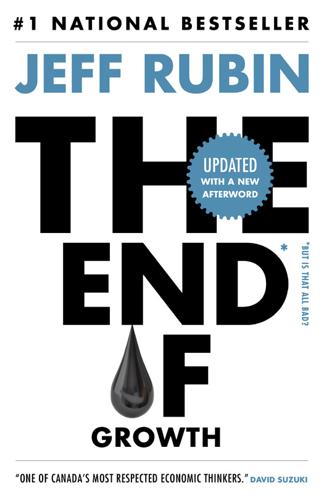
The End of Growth
by
Jeff Rubin
Published 2 Sep 2013
But once again, the economist in me, ever on the lookout for price signals that explain human behavior, felt compelled to ask more questions. It turns out that driving a car in Denmark, much like turning on the lights, is a very expensive proposition. The biggest cost isn’t even at the pumps. While fuel is more expensive in Denmark than it is in Canada or the United States, gasoline prices in Copenhagen are largely in line with the rest of Europe. Yet few other major European cities have the same volume of bike traffic as Copenhagen. What differentiates Denmark from its neighbors is the cost of buying a car. Danish car buyers pay a tax ranging from 100 to 180 percent of the vehicle’s sticker price; the exact amount depends on the size of the engine.
…
Getting ahead of the curve on the environment is a whole lot easier when you don’t need to undermine key parts of your economy to do it. When Denmark slaps a sky-high tax on new cars, it only hurts some other country’s auto exports. And it’s not like German autoworkers get to vote in Danish elections. Contrast Denmark’s situation with the pressures faced by the government of my home province of Ontario. While this may surprise people south of the 49th parallel, Ontario actually produces more cars than any state in the union. When the global recession sent automakers reeling toward bankruptcy, Ontario, along with Canada’s federal government, spent billions of taxpayer dollars to help keep General Motors and Chrysler solvent.
…
Likewise, the oil industry also gets billions in subsidies from governments in the United States and Canada. In the United States, government tax breaks for Big Oil are wrapped in the rhetoric of promoting energy self-sufficiency and reducing the country’s dependence on imported oil from faraway lands that could become unfriendly at any moment. In Canada, subsidies are granted under the guise of protecting one of the country’s leading exports. Danish politicians don’t have to contend with the powerful lobbying efforts of Big Auto or Big Oil. Nor does Denmark have to worry about penalizing hard-working coal miners or assembly-line workers.